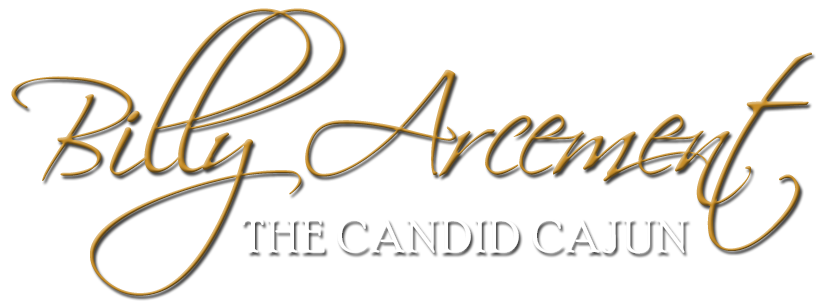By Billy Arcement—The Candid Cajun
Copyright 2021
Details! Details! Details! We all worry if we missed some detail as we prepare for a project, trip, etc. We don’t want to find out too late something we need is not available. I’ve spent time “reviewing my working career” and reflected on the impact details played on my successes and failures. Hope the insights prove valuable to you.
The First Job: I think back to my first job, as a high school science teacher and coach. Standing in front of seniors that were only four or five years younger than me was a bit intimidating. Teaching chemistry to these students required constant study on my part. For the first year, I stayed two weeks ahead of my class. Endless hours of study anticipating questions was the daily norm in the first year. I survived but is was diligence that drove my success. Not being prepared was the formula for abject failure!
When I coached basketball, I charted game details. I looked at how my opponent and my team performed. I would mark where someone shot, if the shots were good and who rebounded a missed shot. I logged fouls committed and free throws made and missed. I also studied where I was successful with defensive and offensive strategies. At the end of each quarter, I had a living picture of the game. Then, I could adjust or stay with a strategy. I would also use the information to determine what we practiced between games. If I found a weakness, we worked on it. We didn't ignore any element of the game or personal performance. This information proved to be a critical part of our being able to win against better teams..
Quality Demands Detail: I left teaching and started a career in the chemical manufacturing industry. My first position was as a shift chemist. In quality control work, the demand for detail never ends. Product analysis has to be accurate so production can make the necessary adjustments. Meeting the requirements of customers is how you stay in business.
During my chemical industry years, I held many senior management positions. I had oversight of quality control, safety and environmental compliance, and technical service to our customers. Each responsibility demanded keeping copious notes on interactions. This habit enabled me to play offense, not defense. It enabled me to win when less detail would have produced a loss. I’ve often shared that the person with the best notes will win the argument or the decision. I have endless examples in these responsibility areas when better notes produced a win.
Professional Speaker: I’ve been speaking professionally for 43 years. Over those years, I’ve created what I now call my Tracking System. From the time a prospect calls to the completion of necessary follow-up activities, I strive not to miss recording details. This system becomes a history lesson for me. I can also use the information to better the process with the next client. It’s always about continual monitoring and adjusting. The last thing I want to happen is to forget an important item or step. It's not fun to be thrust into full-panic mode!! Thus, this system is a critical component of my speaking business.
The system has taken several years to develop. And it is always evolving. I’ve used firsthand experiences and studied my craft to become more professional. I’ve talked to other speakers. It’s a fluid system requiring constant review to catch any missing element. The intent is to stay current and relevant to my needs and those of my clients. It’s important that I maintain my professionalism when I’m with clients. One way is to never have to scurry for something as I set up for my presentation. Preparation is key.
When I’m in front of an audience, the result of my mindfulness is on full display. If I’ve not anticipated elements of my presentation, the “surprise” can be embarrassing. The results of getting caught unprepared, are loss of business and loss of reputation. Details are again the success ingredient no speaker can ignore. As I reflected on these messages, I realized the use of “details” has always been an integral part of my work processes. The knowledge of details has helped me grow and prosper in my work responsibilities.
What about you? What are some of the vital details you need to add to your work processes? Are your energy and effort providing the greatest benefit? Plot steps you now take and look for the improvement steps you can incorporate. Look at your work process as a continuous improvement effort. It's perpetual repositioning.
This practice has immense value in your personal life as well. Going on vacation? Plan the details for an endless string of enjoyment. Miss relevant details and you wander the streets looking for a place to land.
To maximize results, it’s necessary that some personal discipline be part of the process. Excuses are easy to create when we don’t incorporate discipline. But the big “D” is your friend. To make an “A” in life, you need to make a “D” in processes.
Richard Carlson’s book, Don’t Sweat the Small Stuff…and it’s all small stuff, is filled with strategies that focus on valuable lessons to stop letting the insignificant details overwhelm your life. And that is a purpose that will not only make you more efficient but less stressed and calmer. Who wouldn’t like this approach?
